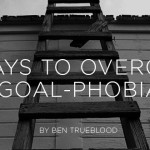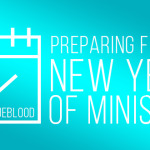One of the most memorable wedding ceremonies I’ve ever been to took place within the Cathedral of Stormwind, a location within the popular video game World of Warcraft. The bride and groom met while playing online together, eventually met outside of the game, and were married in what we would all think of as a more traditional wedding environment: a church. But, because this couple had so many friendships within World of Warcraft, they wanted to have an additional ceremony to celebrate their union with all of us, the vast majority of whom had never met in person.
Online environment, real community
Five months ago, there were many in the church who would have scoffed at the idea of real community taking place in an online environment. Fast forward to our present day, and those inside the church are beginning to realize something that the world of gaming has been showing us all along: that real, meaningful relationships can take place in a digital environment. In this mid-to-post-COVID world, you’ve come face to face with this reality as you’ve moved much of your programming online. Is it a direct replacement for in-person relationships? No, but for the church to ignore the potential ministry opportunities that a digital environment offers would be foolish.
People crave community and connection
Gaming has shown us that real online relationships are possible, but it has also shown us something much deeper: that people crave community and connection. This is something you know from a spiritual perspective, and something you believe that the church is uniquely equipped to provide for people. Yet, the people in our churches often seek community elsewhere: gaming, CrossFit, run clubs, reading groups, and a whole host of other activities. Are these things bad? Absolutely not, but it should push us to evaluate if we as the church are offering opportunities for people to truly find community or are merely providing a place for people to attend. COVID-19 has caused many problems in our world and in our churches, but one of the great gifts it has given us is the opportunity to re-center our ministries on relationships and community.
Ministry calling demands community
As a church leader, you need community too. It isn’t just something you need to make sure you are providing for those who you are pastoring, yet that is the place so many church leaders find themselves. I’ve been there before too. I avoided community because I believed I couldn’t be truly vulnerable with people who I attended church with, and I believed that I needed to appear as though I had everything figured out in order to be an effective student pastor. While I’ve come to know that both of these things aren’t true, it was the beginning of my journey in seeing the value of having relationships with people who know my context as a pastor, but are not in my context. Now, I have a group of friends across the country that I connect with frequently and am in the same room with once per year for a couple of days. These relationships are life-giving and the time we spend together have become some of my favorite days of the year.
A place for YOU
These kinds of relationships, with people who know your context as a student pastor but are not in your context, are what we hope to make available to student pastors across the country through Youth Ministry Booster. Each member of Booster is placed into a small Mastermind group with 6-8 peers and a seasoned ministry host, where these kinds of relationships can begin.
While we understand that truly vulnerable relationships don’t happen overnight, we believe that putting student pastors in opportunities for those relationships can begin will go a long way to developing healthy leaders— and as a result—healthy student ministries. I would love for you to be part of Youth Ministry Booster and the relationships that exist there.

This post was written by Ben Trueblood, Director of Lifeway Students. Ben is passionate about investing in student ministry leaders like you. You can find more encouragement from Ben on his YouTube Channel, Student Ministry That Matters.



